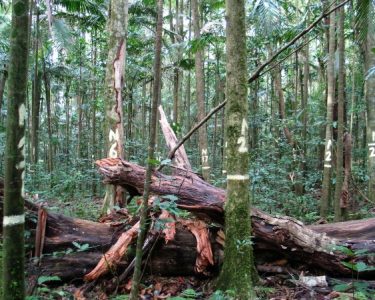
ZANZIBAR, Aug 23 (NNN-DAILYNEWS) — A DISEASE once considered an inescapable part of life in Zanzibar’s rural communities is showing signs of retreat. Thanks to a unique joint health initiative between China and Zanzibar that has made significant strides in the fight against schistosomiasis.
Schistosomiasis – a parasitic infection spread through contact with freshwater – is being pushed back through coordinated surveillance, treatment, water safety, and health education efforts.
This month, the second phase of the China-Zanzibar Schistosomiasis Control Cooperation Project concluded, marking another milestone in a multi-year programme that is combining international expertise with local knowledge.
Over the past year, the project team, comprising Chinese medical experts and Zanzibar health officials, carried out island-wide screenings, launched new pilot control zones, cleared infected water bodies, and introduced advanced diagnostic technologies to the islands.
Between September 2024 and August 2025, the team screened more than 125,000 people across Pemba and Unguja, collecting nearly 100,000 urine samples and identifying 1,408 positive cases. Every single patient received standardized treatment and follow-up.
The results are encouraging: on Pemba Island, the overall infection rate dropped from 1.23 per cent in 2023 to just 0.79 per cent in 2025. In high-risk areas, prevalence fell even more dramatically—from 3.98 per cent to 1.43 per cent. Among schoolchildren, a group particularly vulnerable to infection, rates declined from 3.32 per cent to 0.75 per cent.
“These figures confirm that sustained, integrated interventions are working,” said Dai Yang, head of the China-Zanzibar project team. “It shows that together we can significantly reduce the disease burden and protect future generations.” Others who were in the team are Shi Liang, Chen Xiaojun, Xu Zhangyi, and Ren Guorong.
At the heart of the disease’s transmission are freshwater snails that serve as intermediate hosts for the schistosomiasis parasite. To tackle the problem at its root, the project conducted two rounds of extensive snail surveys covering over 21 million square meters of ponds and streams on Pemba Island.
Infected water bodies were treated with molluscicides, resulting in a 100 per cent clearance rate in schistosome-positive sites. The number of live snails plummeted after treatment, with follow-up surveys confirming the effectiveness of the strategy.
To ensure safety, a local company was contracted to conduct an Environmental Impact Assessment (EIA) on the Chinese-produced molluscicide Niclosamide.
The final report, due soon, will guide future large-scale use. Beyond direct treatment, the project has also focused on prevention. Four new safe water supply stations have been constructed in Pemba communities, with a combined storage capacity of 80,000 litres and 21 associated water points. These facilities reduce residents’ reliance on unsafe ponds, dramatically cutting the risk of infection.
“The new water points are a blessing,” said Mr Hamad Juma Hamad a resident of Kilindi village. “We no longer have to worry about children washing in ponds where the disease spreads.”
Meanwhile, education campaigns reached nearly 10,000 residents through lectures, school activities, community competitions, and awareness events timed with international observances such as World Toilet Day and World Water Day. New guidelines tailored for schools and communities were published, ensuring the message spreads beyond the duration of the project. Ali, a local field worker, described the close working relationship with the Chinese experts.
“They don’t just sit in offices. They come with us to the field, walk through villages, discuss problems, and adapt solutions. That practical cooperation is what makes people trust them and helps us learn faster.” While much of the first phase focused on Pemba, this year saw a major expansion to Unguja Island, where infection remains endemic, particularly in the north.
In March, a pilot control area was launched in three northern communities: Kinyasini, Kikobweni and Chaani Masingini. Baseline surveys revealed infection rates of 3 per cent to 6 per cent. More than 5,600 residents were tested, with 234 positive cases treated.
The pilot zone now serves as a model for integrated control, combining diagnosis, snail control, safe water initiatives and education.
“This is a breakthrough moment,” said Dr Shaali Makame Ame, a Neglected Tropical Diseases project manager at the Ministry of Health. “With data from these pilot communities, we can plan more targeted interventions.
Dr Ame said the Chinese experts have not only brought equipment and medicine, but also valuable prevention strategies that are helping us get closer to the World Health Organisation’s elimination targets.
A key goal of the cooperation is ensuring Zanzibar has the capacity to sustain the fight long after foreign teams depart. Over the past year, more than 400 local health workers have received training in diagnosis, laboratory analysis, health education, and data management.
Laboratories were upgraded, boosting daily processing capacity to 3,000 samples. Four local field teams now operate independently and Zanzibar’s data unit can conduct full-scale analysis without external assistance.
In addition, the project introduced new technologies— including rapid DNA-based urine tests and artificial intelligence (AI) tools capable of automatically identifying infected snails and parasite eggs under the microscope.
These tools, pioneered in China, have been adapted to Zanzibar’s conditions and are now being tested in local labs. The project’s success has drawn attention from international stakeholders.
Delegations from the World Health Organisation, University of Milan, Leiden University and Nanjing Medical University have visited Zanzibar to observe the program in action. Officials say the project is a textbook example of SouthSouth cooperation, where developing countries share expertise and technology to solve common challenges.
“Step by step, this project is showing what can be achieved when knowledge and resources are shared across borders,” said a senior Zanzibar health official.
“It is more than just disease control—it is about building resilience and creating a healthier future for our people.” For residents in affected communities, the changes are already visible. Parents no longer fear sending children to fetch water, school health programmes are making kids more aware and free treatment is reducing the financial burden on families.
One mother in Chaani Masingini, whose name could not be immediately identified, summed it up: “Before, we thought this disease was part of life. Now we see it can be controlled and maybe even eliminated. That gives us hope.”
With Phase Two completed, preparations are underway to expand activities, complete new water supply projects and fully integrate schistosomiasis into Zanzibar’s disease surveillance system.
The achievements of the past year, local officials say, are just the beginning. If momentum is maintained, Zanzibar could soon become a regional success story in the global push to eliminate schistosomiasis. — NNN-DAILYNEWS






